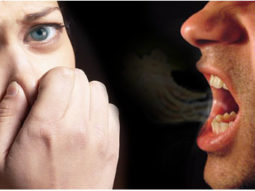Tinnitus Underlying Causes
Tinnitus, the perception of ringing or other sounds in the ears or head without any external noise, is a distressing symptom associated with auditory system dysfunction. It can be caused by various factors such as loud sounds, stress, cochlear hair cell degeneration, medication use, and ear problems.
The effects of tinnitus include distress, depression, anxiety, concentration difficulties, and sleep disturbances. Although there is no cure for tinnitus yet, management options such as stress reduction techniques and various therapies are available.
Preventive measures involve the use of earplugs in noisy environments and reducing stress levels. Resources and support organizations exist to assist individuals coping with tinnitus.
Key Takeaways
- Tinnitus can be caused by exposure to loud sounds, extreme stress or trauma, degeneration of hair cells in the cochlea, ear problems such as otosclerosis, Meniere's disease, and certain medications.
- Taking preventive measures such as using earplugs in loud environments, avoiding standing near speakers at live music events, and limiting volume and duration when using headphones can help prevent tinnitus.
- The early stages of tinnitus can lead to extreme distress, depression, mood swings, anxiety attacks, tension, irritability, frustration, poor concentration, and sleep problems. It is important to consult a healthcare professional, learn about tinnitus, accept the condition, and understand temporary depression and fatigue.
- Adapting to tinnitus involves reaching a point of no negative emotional reaction through habituation. While there is no cure for tinnitus, it can be managed, leading to improvement in sleep, concentration, depression, and anxiety. Some days may still be troublesome.
Common Causes of Tinnitus
Common causes of tinnitus include:
- Exposure to loud noises: Prolonged or sudden exposure to loud sounds can damage the delicate structures within the inner ear and lead to the perception of ringing or buzzing in the ears.
- Extreme stress or trauma: The exact mechanisms by which stress contributes to tinnitus are not fully understood but may involve changes in neural activity and increased sensitivity in the auditory system.
- Degeneration of hair cells in the cochlea: This can result from natural aging processes or from prolonged exposure to loud noise. This damage disrupts normal auditory processing and can lead to tinnitus symptoms.
- Ear problems such as otosclerosis and Meniere's disease: Otosclerosis is a condition characterized by abnormal bone growth within the middle ear, while Meniere's disease involves fluid buildup in the inner ear.
- Certain medications: Some antibiotics, diuretics, nonsteroidal anti-inflammatory drugs (NSAIDs), and cancer drugs have been linked to tinnitus development as a potential side effect.
- Other factors: Temporomandibular joint disorders (TMJ), high blood pressure, head or neck injuries, inner ear abnormalities, fibromyalgia, Lyme disease, and lifestyle factors such as stress levels and smoking habits may also contribute to tinnitus.

Medical Conditions and Tinnitus
Inner ear changes, Meniere's disease, head and neck injuries, fibromyalgia, and Lyme disease are some medical conditions that can potentially trigger the sensation of ringing in the ears. Inner ear changes, such as abnormalities in the inner ear bones, can disrupt the normal auditory processes and lead to tinnitus. Meniere's disease is an inner ear disorder characterized by episodes of vertigo, hearing loss, and tinnitus. Head and neck injuries can result in damage to the auditory system or cause inflammation that affects the perception of sound. Fibromyalgia is a chronic pain condition associated with widespread musculoskeletal pain and fatigue. It has been found to be associated with an increased risk of tinnitus. Lyme disease is a tick-borne illness caused by bacterial infection. While not directly related to auditory function, it has been reported that some individuals with Lyme disease experience tinnitus as a part of their symptoms.
It is important for individuals experiencing tinnitus to consult a healthcare professional for accurate diagnosis and appropriate treatment options. Identifying these underlying medical conditions can help guide management strategies tailored to each individual case. Further research into the mechanisms by which these medical conditions contribute to tinnitus may provide insights into potential therapeutic interventions for this distressing symptom.
Environmental Factors and Tinnitus
Environmental factors can play a significant role in the exacerbation of tinnitus symptoms. Stress, for example, has been found to have a negative impact on individuals with tinnitus. Emotional and psychological stress can worsen the perception of tinnitus sounds and increase distress levels.
Additionally, continued exposure to loud noises is another environmental factor that can contribute to the development or worsening of tinnitus. Prolonged exposure to loud noises can damage the delicate structures within the ear and lead to tinnitus symptoms.
Smoking is another environmental factor that may increase the risk of developing tinnitus. Studies have shown that smoking can cause oxidative stress and inflammation in the auditory system, potentially leading to the onset or intensification of tinnitus symptoms.
Furthermore, diet and hydration may also play a role in aggravating tinnitus symptoms. Poor diet lacking essential nutrients or dehydration can affect overall health, including the auditory system's function.
Lastly, sleep disturbances have been associated with increased severity of tinnitus symptoms. Lack of quality sleep can negatively impact an individual's overall well-being and make them more susceptible to experiencing heightened distress from their tinnitus.
Lifestyle Factors and Tinnitus
Lifestyle factors, such as stress levels, exposure to loud noises, smoking habits, diet and hydration status, and quality of sleep, can significantly impact the severity and perception of tinnitus symptoms.
Stress has been found to exacerbate tinnitus symptoms, as emotional and psychological stress can worsen the perception of the condition.
Similarly, exposure to loud noises is a well-known risk factor for tinnitus development and can also contribute to its severity.
Individuals who engage in smoking are at a higher risk of developing tinnitus compared to non-smokers.
Additionally, poor diet and dehydration have been suggested as potential factors that may worsen tinnitus symptoms.
Finally, the quality of sleep plays a crucial role in managing tinnitus symptoms as lack of quality sleep can exacerbate the condition.
Therefore, it is important for individuals with tinnitus to adopt healthy lifestyle habits including stress management techniques, avoiding excessive noise exposure or using ear protection when necessary, quitting smoking if applicable, maintaining a balanced diet and staying hydrated, as well as ensuring adequate sleep hygiene practices in order to minimize the impact of these lifestyle factors on their tinnitus symptoms.
Other Underlying Causes of Tinnitus
Other medical conditions, such as head and neck injuries, fibromyalgia, and Lyme disease, have been identified as potential triggers for the perception of ringing in the ears or head. Inner ear changes, including abnormalities in inner ear bones, can also lead to tinnitus. Meniere's disease, an inner ear disorder characterized by episodes of vertigo and hearing loss, is another condition that can cause tinnitus. Trauma to the head or neck resulting from accidents or injuries has also been associated with the development of tinnitus.
Furthermore, fibromyalgia and Lyme disease have been identified as potential underlying causes of tinnitus. Fibromyalgia is a chronic pain disorder characterized by widespread musculoskeletal pain, fatigue, and sleep disturbances. It is believed that the inflammation and nerve dysfunction associated with fibromyalgia may contribute to the perception of ringing in the ears.
Lyme disease is a bacterial infection transmitted through tick bites. In addition to flu-like symptoms and joint pain, some individuals with Lyme disease may experience tinnitus. The exact mechanisms by which these medical conditions trigger tinnitus are not fully understood but may involve complex interactions between inflammatory processes and disruptions in auditory pathways.
Frequently Asked Questions
Can Stress and Anxiety Worsen Tinnitus Symptoms?
Stress and anxiety can exacerbate tinnitus symptoms. Emotional and psychological stress can worsen the perception of tinnitus, leading to increased distress and discomfort. Individuals with tinnitus should address stress levels as part of their management approach.
Are There Any Medications That Can Cause or Worsen Tinnitus?
Certain medications can cause or worsen tinnitus. Prescription and over-the-counter drugs have been identified as triggers for tinnitus symptoms. It is important to consult with a healthcare professional regarding any potential medication-related effects on tinnitus.
Can Tinnitus Be a Symptom of a More Serious Underlying Medical Condition?
Tinnitus can be a symptom of various underlying medical conditions. Although it is often associated with hearing loss or ear problems, it can also be linked to factors such as head and neck injuries, inner ear abnormalities, and certain systemic diseases.
Is It Possible for Tinnitus to Go Away on Its Own Without Treatment?
The possibility of tinnitus resolving spontaneously without treatment is uncertain. While some individuals may experience a reduction or elimination of symptoms over time, the persistence of tinnitus varies among individuals and depends on various factors such as underlying causes and individual characteristics.
What Are Some Common Myths or Misconceptions About Tinnitus and Its Causes?
Common myths or misconceptions about tinnitus and its causes include the belief that it only affects older adults, that it is a sign of hearing loss, and that there is a cure for tinnitus. These misconceptions can lead to misunderstanding and frustration for individuals with tinnitus.
Previous Posts






